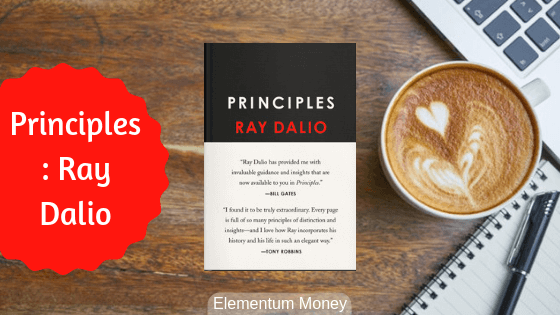In my over nine years of working, I have come to the conclusion that there are two ways of communicating anything – one by being rude and aggressive and two by being polite and courteous yet putting your point across and getting the job done. In my mind, courtesy has a far deeper role in our lives extending to almost every aspect of communication. While we were all taught as kids to not answer back or to tone that voice down, as we break free from the shackles of adult supervision tend to forget these things too. Before I come across as preachy, let me confess that I have had enough instances where I myself have succumbed to the easier path of giving in to being rude. However, over the last few years, I have been consciously working up to integrating courtesy and politeness through my communication leading me to this post about why courtesy has an important role in our lives.
What does courtesy mean?
Oxford Dictionary defines courtesy as “The showing of politeness in one’s attitude and behavior towards others”. Courtesy is a blanket term that encompasses various angles to it and is not limited to the lip service through basic words that we are taught as children.
1. P’s and Q’s
I still remember when I read this phrase the first time in an Enid Blyton story and the little boy got punished when he just couldn’t be bothered to remember his P’s and Q’s, or Please and Thank You’s to the uninitiated. Apart from these two, I think Sorry is as important if not more because it requires far more effort to be humble enough to apologize, sometimes even to family members. Please for when you request someone for something, Thank you for when someone does something for you and sorry for when you do something wrong. These common courtesies should be applied irrespective of how small or big the act and an apology should be used whether the act was intentional or not. For instance, I hate it when people step on my foot and just stride forward because hey they didn’t do it intentionally. Sorry might be one word but at the right moments, it’s far more in weight.
2. Treating others as equals
When you think of other people as being beneath you, it seeps through your words, behaviour and body language. When you believe that you are better or superior to the other person, rudeness or assumptions of service make their way. Remembering that we are all humans with an innate sense of self-respect leads to better courtesy in communication too.
3. An even tone
When people raise their voices, especially without provocation, it really gets my goat. Whether you believe the other person has been unable to understand you or you are using a conversation as an outlet for some other stress, I am quite sure nobody appreciates raised voices. Unless it is truly necessary or as a disciplining mechanism in the circumstance, I am quite sure not raising your voice can get the result, most times in a better way.
4. Not getting personal
While this is a blurred line in personal relationships, I think it is so so important in the workplace. I can never forget two instances where my bosses have called me to a room, and trampled over all boundaries to move on to character assassination. I like to believe that I am not a crier and in those instances tears sprang naturally which were wilfully ignored. To ensure I am not being sexist here, let me reveal that the first time the offender was a man and the second time the offender was a woman. When communicating in the work place, I truly believe it is possible to limit yourself to the work at hand rather than getting personal, making unwarranted character comments and losing your shit in a way that the other person will never forget to ensure they construct permanent boundaries. In such instances, even an apology months and months later doesn’t help.
5. Behave as you want done to you
Another golden maxim to guide you in what counts as courtesy. When you come home tired from work and some one is there at home, would you like it if they get you a glass of water? If your answer is yes, maybe ask the next service person who comes to your house if they would want water. If you are visibly doing something important, would you want someone to repeatedly poke you asking random questions? No? Then you know what to do the next time you see someone trying to focus on something.
Why is courtesy important
The above definition of courtesy might seem like a lot and something that can take a lot out of us. What makes it worth it for us to put in so much effort. After all, even when you put an input into a computer, you do it only expecting an output. Courtesy has quite a few benefits to boast of and I will list down five of them here.
1. A great relationship builder
This holds true in personal and professional life. Even in my role as a Wealth Specialist, I have realized that a lot of business happens on the basis of relationships and courtesy is a huge factor in building relationships. In personal life, in our initial years, my husband had the adorable habit of hanging up in the middle of an argument and I would go back hot on his heels telling him he better not do it. While we have now started arguing on WhatsApp to avoid this dance, common courtesy even in personal relationships is a great enhancer.
2. You reap what you sow (in most cases)
Our past interactions with another person builds up a directory in their head. When you meet someone, you will go prepared to have a good interaction or have your guard up. For instance, when I was in marketing and often had to interact with the same few people day in and day out, I pretty much knew which person would be a delight to talk to and whom to avoid.
3. Rudeness increases stress and impacts productivity
When you encounter rudeness or are rude yourself, observe how it stays with you in an unpleasant manner for quite long. You might be fuming or even plotting revenge. I know I do it sometimes. It had a definite impact on enhancing stress levels and negatively impacting productivity. On the other hand, a pleasant interaction makes for a happy glow.
4. Sets an example
When you have impressionable people around you, courtesy is the right thing to set an example with. Be it children that you are raising or colleagues you might be mentoring, only when you practice the right thing can they inculcate it themselves.
5. It’s the right thing to do
I have given enough and more reasons why courtesy needs to be incorporated in our communication. As for being rude, I have no reason at all to recommend or even defend it. I rest my case.
How can you improve on courtesy in your life?
You know what they say, there is always room for improvement. No wonder self-help books are having their moment in the sun today. Staying on the topic, here are some ways you could improve or intensify courtesy in your life:
1. Start with why
I am a big believer in the phrase Start With Why. Each and every thing you do has to have an innate reason to it to even be mildly successful. In this case, pick any of the above reasons or tell yourself you are better and beyond cavalier rude behavior. Either way, have a strong reason why you want to be courteous. For me, I hate it when people are rude to me and I would better not act the way I don’t want to be acted against.
2. Inject more appreciation
You know how adding cool water reduces the temperature of hot water. In a similar way, add the coolness of genuine appreciation in your interactions (do note the word genuine). There is genuine dearth of people appreciating each other for small or big gestures. Think of the appreciation that you dole out as a deposit for possible future involuntary acts of rudeness.
3. Start with a clean slate
I mean a clean slate in two ways – one, do not let other stresses of life lead to unpleasant interactions when unnecessary and two, try to not harp on or remember with excruciating detail the way in which the other person might not have been nice to you. I will be the first one to raise my hand to accept that this is very difficult. But, consciously trying to remember this can help over time to integrate it.
Have you ever given more than a passing thought to the role of Courtesy in our lives? Do you consciously try to be courteous in your interactions? Let me know in the comments below.





Leave a Reply